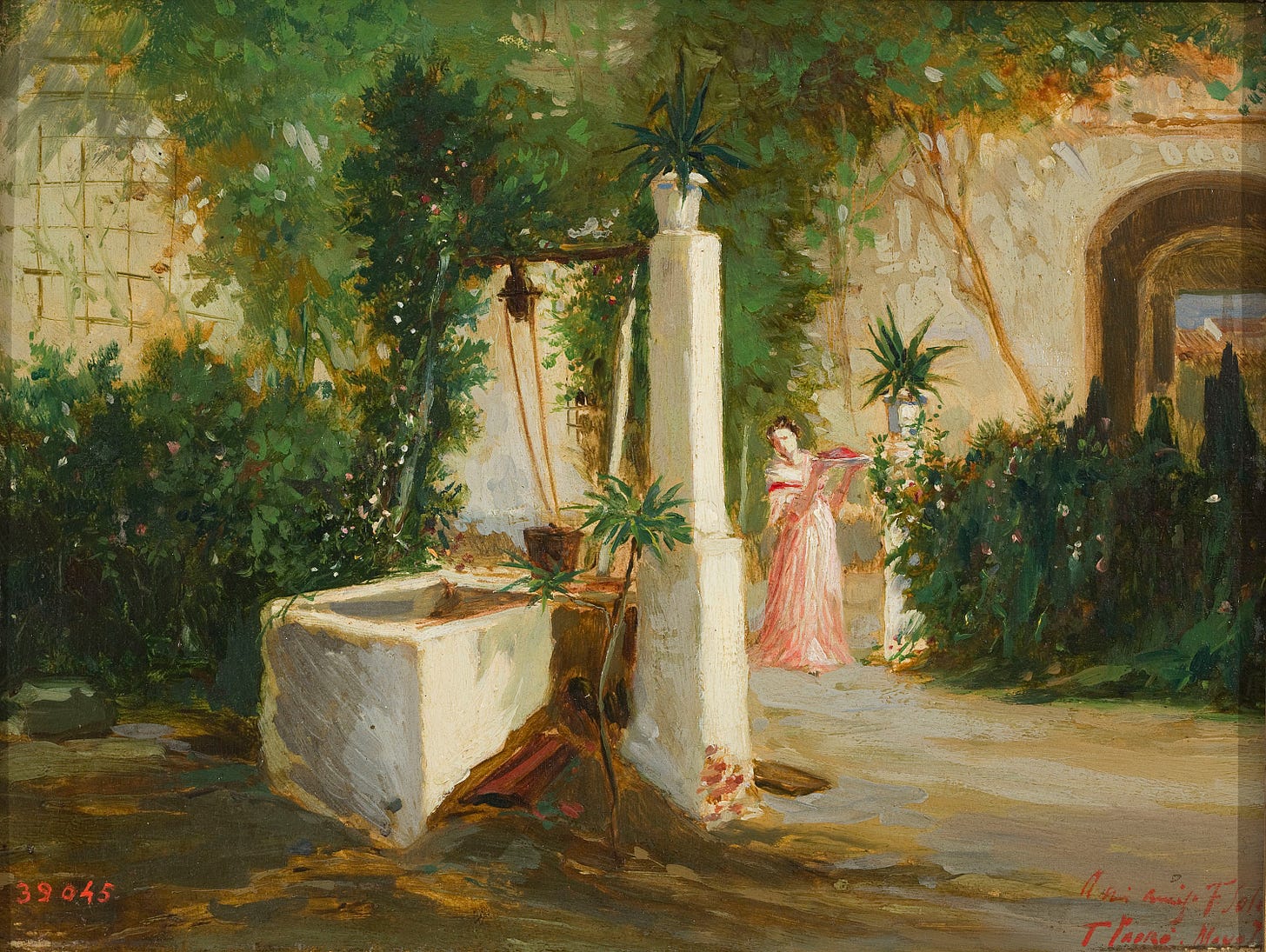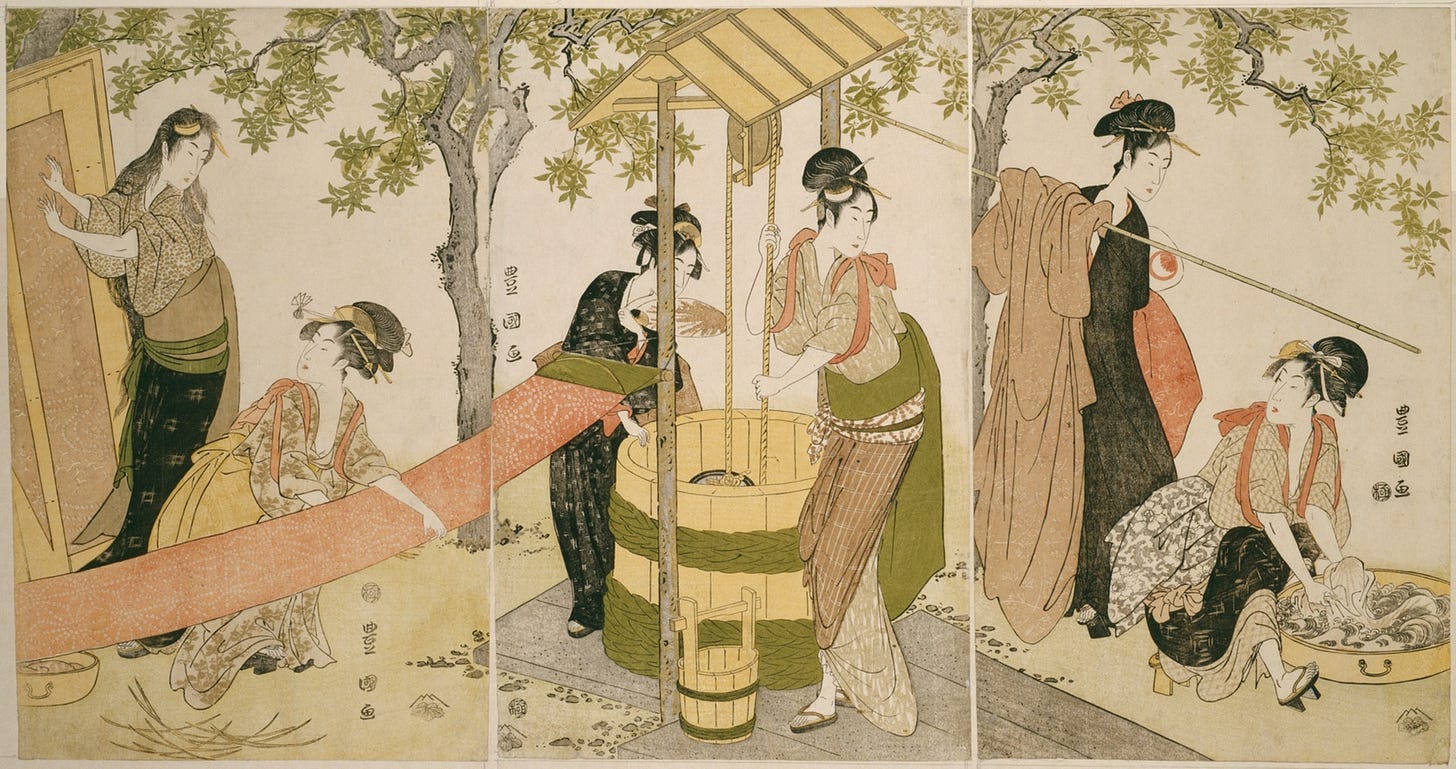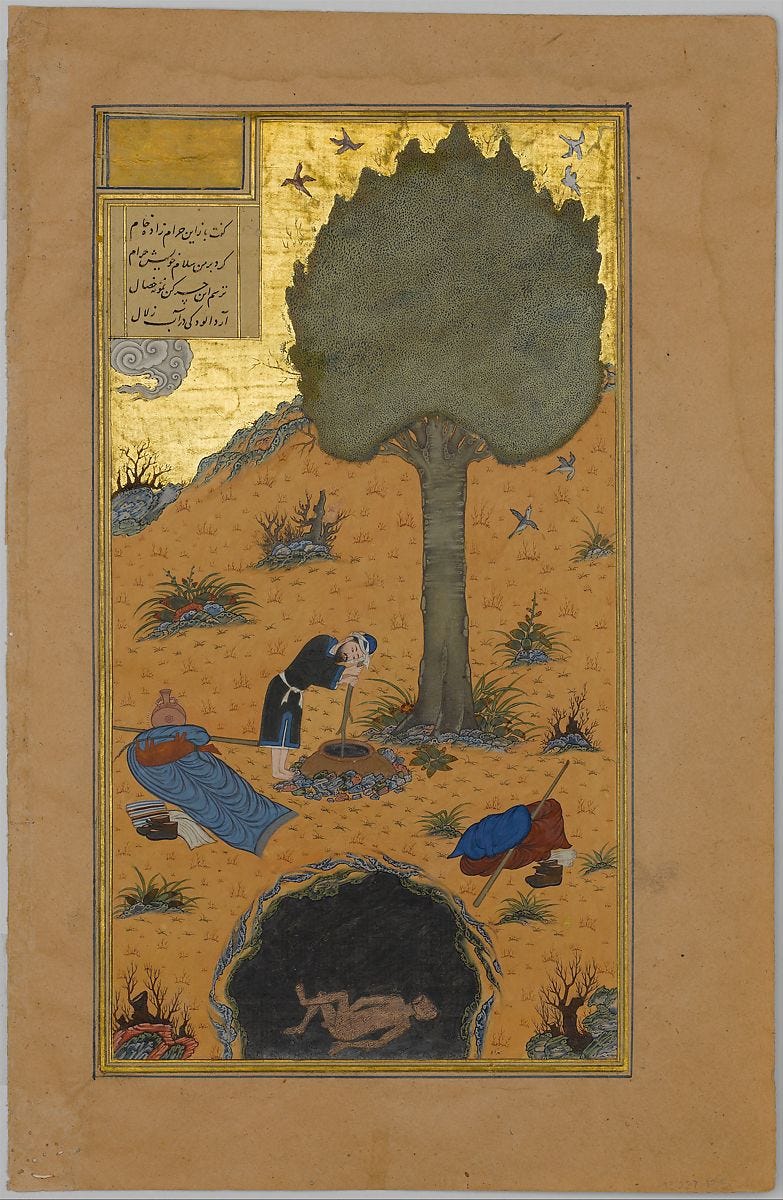#90. WELL / POU
Believed it may be, and the sight be justly craved. / Es pot creure i aspirar a veure-ho.
WELL
Wells are sacred places, the house of imagination and dreams, a source of wisdom and healing. They are associated with yin energy and powerful female figures. Water coming from a dry soil conveys a mysterious, uncanny feeling. Animist peoples and ancient civilizations celebrated purification rituals with the water of the wells to cure the sick. Demeter, Greek goddess of agriculture worshipped in the mysteries of Eleusis, used to appear depicted next to a well. Hexagram 48 of the I Ching is called tsing (well) and considers that a well full of water and uncovered is the emblem of sincerity, rightness and happiness. The action of removing water from a well has a symbolism similar to fishing: catching a divine treasure from the dark depths. In Christian iconography, the freshwater well is the symbol of sublime aspiration, of the connection with the inner kingdom and represents salvation. The wells connect us to an underground world that evokes our own depths and points towards an infinite psychic matrix. Looking at the water of a well, as looking at the surface of a lake, is the image of the contemplative attitude of mystics surrendering to the religious experience. As Jung said, big religions can be understood as a protection to face the raw religious experience, free from reference frames and absolutely overwhelming.
“We long to be given the next step and the route to the horizon, allaying our anxiety with the illusion of a destination somewhere beyond the vista of our present life. But the hardest reality to bear is that death is the only horizon, with numberless ways to get there — none replicable, all uncertain in their route, all only certain to arrive.”
POU
Els pous són llocs sagrats, la casa de la imaginació i els somnis, una font de saviesa i curació. Estan associats a figures femenines poderoses, a l’energia yin. L'aigua sorgint de la terra seca transmet una sensació inquietat, misteriosa. Els pobles animistes i les civilitzacions antigues celebraven rituals de purificació amb l’aigua dels pous per curar els malalts. Demèter, deessa grega de l’agricultura adorada als misteris d’Eleusis, solia aparèixer representada al costat d’un pou. A l’I Ching, l’hexagrama 48 s’anomena tsing (pou) i l’oracle afirma que un pou ple d’aigua i destapat és l’emblema de la sinceritat, la rectitud i la felicitat. L’acció de treure aigua d’un pou té un simbolisme similar a la pesca: atrapar un tresor diví de les profunditats fosques. En la iconografia cristiana, el pou d’aigua fresca és el símbol de l’aspiració sublim, de la connexió amb el regne interior i representa la salvació. Els pous ens connecten amb un submón subterrani que evoca les nostres pròpies profunditats i apunta cap una matriu psíquica infinita. Mirar l’aigua d’un pou, igual que observar la superfície d’un llac, és la imatge de l’actitud contemplativa dels místics entregats a l’experiència religiosa. Com deia Jung, les grans religions poden ser enteses com una protecció per sostenir l’experiència religiosa crua, lliure de marcs de referència i absolutament aclaparadora.
“Anhelem que ens diguin com avançar i el camí a seguir cap a un horitzó per alleugir la nostra ansietat amb la il·lusió d'un destí més enllà de la vista de la nostra vida actual. No obstant, la realitat més difícil de suportar és que la mort és l'únic horitzó, amb formes innumerables d'arribar-hi, impossibles d’imitar, totes incertes en la seva ruta, però amb la certesa absoluta d’acabar-hi arribant.”










